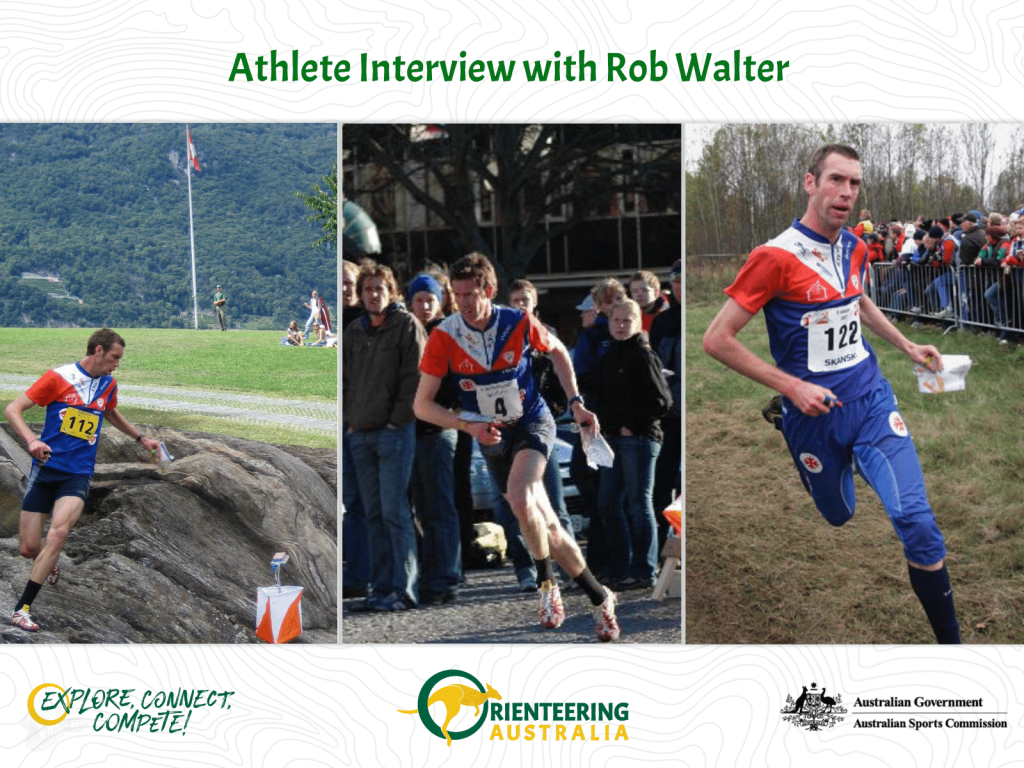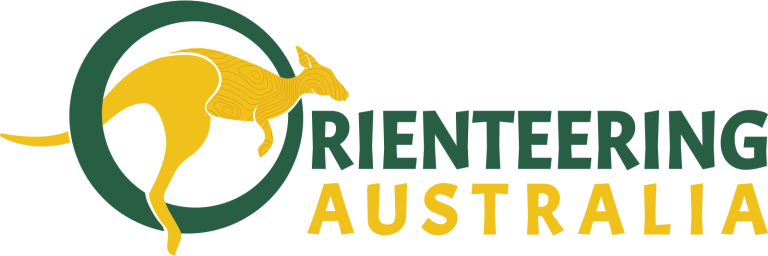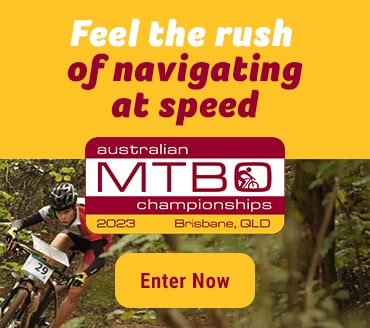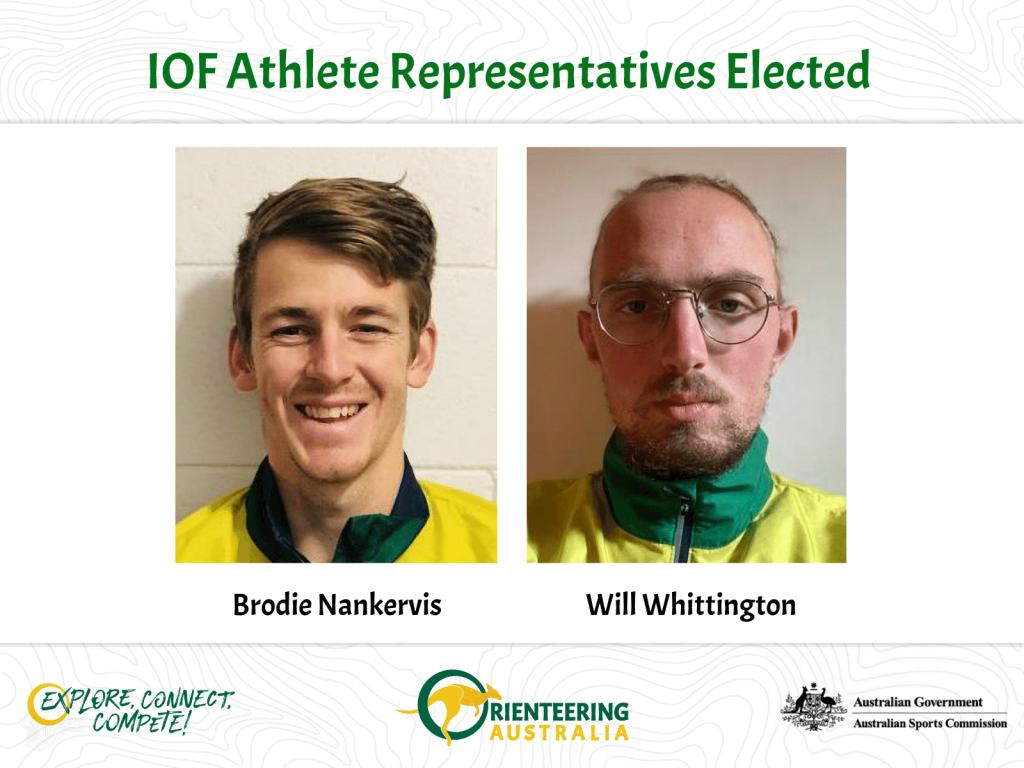
We are back in March for the athlete interview and this month we’re going back in time a little bit and chatting to one of Australia’s all-time greats Rob Walter.
Rob was part of the Australian team who came 6th in the World Champs Relay in Finland in 2001. He also had an individual 5th place at World Cup in 2000 when it was in Canberra and a multitude of other results as well. So I’m really excited to talk to Rob, and he’s going to go over some of his experiences racing at the highest level few years ago. Thanks, Rob, for coming along.
No worries Brodie.
Well, I thought maybe let’s just start with the highlight of your elite orienteering career? What’s the thing that you look back on most fondly or the best experience?
I think that world champs really was a highlight. Just because, you know, it was with Grant and Tom and Troy and we’d spent so much time together, trying to get good together, training. And so to run a relay with mates like that and do really well, that was a real highlight. The World Cup as well, that’s probably my best individual result.
You know, when I finished elite orienteering, in some ways I was a bit disappointed. Like I felt like I’ve never really achieved what I thought I could, especially internationally. A lot of my best results were in Australia. But then a few years later as you get a bit older, you realise that it’s not just about the results, it’s about the whole journey. Learning to push yourself and trying different things and going to different places and hanging out with different people. It was 10 plus years of doing that, travelling around going to races. And you know, hanging out with all of the Malungs Orienteering Club crew. In retrospect, that’s the whole journey. That’s the thing that you realise was the most important.
Yeah, definitely. I think that it’s easy to get caught up in the results. But even if you’d come fourth with the guys instead of sixth, it’s more about that experience of running with them. I feel very similar now with relays and having that shared experience. And even if it’s in individual races, that shared experience with teammates is fantastic. Maybe that means I’m getting older as well haha.
Yeah. I still think back to some of those races, especially in Sweden with Tio Mila. It’s something that everyone looks forward to all through winter and there’s always talk in the lead up about which people will be running, who’s going to be in the first team and it’s just so much build up. I can remember almost feeling sick once you sort of find out what leg you’re running and the nervousness before the race because you know you don’t want to let the other nine people in the team down. It’s a really exciting process leading up to those big relays.
That’s cool, a lot of hype and excitement. And those relays, what leg did you end up running?
The very first time I ran to Tio Mila with Malungs when we came fourth, I think I ran the sixth leg. I’m flying over from Australia the week before and six was going to be a night log and I hadn’t done much night orienteering. So Grant set a night training for me and I drove the car out in the snow and went to do the course. I don’t think I found a single control. Luckily for me the race went pretty slow and so by the time I had to run, it was daylight and we had just gotten into the lead. So, I went out in the lead with Halden and Turin as my introduction to Tio Mila, it was pretty high pressure.
Wow that sounds like such a cool experience. And I think your experiences there and sharing them has helped pave the way for others. Over in Europe we are now often seeing Australians and New Zealanders on the first leg and having a real crack. I know Henry’s had a few good runs and Tim’s been there. It’s cool to see that the next generation getting involved!
Yeah, exactly. I eventually became a first leg runner and ended up running first a lot. You know, I think seeing other Australians performing is one of the things that motivates you and makes you believe. Grant was a big role model for me; you know he paved the way with that. But also at the very first JWOC I went to in Poland in 1994, Tom Quayle was 4th and seeing that helped a lot of us believe that, you know, we could be as good as the best people if we got everything right.
Definitely. And I think we see that now these days with us and probably the New Zealanders together, Matt Ogden and Tim Robertson, Aston, Henry- those results sort of paving the way and leading others to believe that they can also do it. I think that belief is really important coming from Australia. It’s awesome to look back on those results and have those people around so that they can push everyone else on.
Yeah, for sure.
Well on that note, what’s one or two pieces of advice you would give anyone that’s keen to do what you did on the world stage or those goals to push themselves in international orienteering?
I think ask for help. Get people to give you some help with coaching. And not just your physical training, but also the technical side of training as well. I think that can make a huge difference. The other thing is to be patient. Training works best when you just keep at it over a year or two and you know, if you go, if you go a bit too hard, normally it backfires. So chipping away at it is better. Be patient and enjoy the journey.
I like that phrase, “enjoy the journey”. I think that is key. We’re not doing this for money or fame. We’re doing this because we love orienteering. So always coming back to that I think is important. Otherwise you can get bogged down in results.
Yes. It’s important in all top-level sport but in orienteering in particular you have a lot more bad days and bad runs than really good ones. So you have to enjoy those good ones and not be deterred by the days when it doesn’t go right. Try and learn something from it and come back better.
That’s good. So 3 key tips, (1) Get people to help you along the journey, (2) Consistency and (3) It’s OK to have a bad day. I like it.
So, Rob, you’re doing a little bit of coaching in the ACT, but you’ve also come on board as a junior team selector this year. Can you tell us a bit more about that?
It’s really great to see the talent that’s coming through and the effort that a lot of the younger orienteers are starting to put in. Here, where I am in Canberra, there’s a really great group of juniors and younger seniors that are all training together.
I loved going on training camps when I was training and competing. That was the highlight for me- going on a camp and just hanging out with your mates and training. So one of the things I’ve tried to help get going a bit is a few training camps here around Canberra.
And yes, I’m coming on board as a selector this year. I mean, when Tash asked me to do it, I was quite happy to partly just because, you know, I think it’s important to give back to the sport. It’s the selectors, the coaches and the managers who support you when you’re running in the elite classes and now it’s time to give back a bit. It’s also a nice way to get a bit more involved with all the up-and-coming runners. If you’re a selector, you’ve got to keep track of how everyone’s going. You hope that it’ll be clear cut when you’re a selector and you hope it’ll be an easy job. But, you know, inevitably there’s always a few harder decisions to make and I think having a bit of experience for being in that situation as an athlete can help you to make some of those decisions as well.
It’s great to have people like yourself Rob onboard and helping out. Lots of people doing jobs here and there is really useful for the sport. It’s amazing having someone of your experience and knowledge. Anything else you are involved with in orienteering at the moment?
The other thing I love doing now that I don’t race as much is course setting. That’s the other thing where I try and get involved in orienteering. It’s nice to create the challenges for other people.
It’s a nice challenge in itself trying to set a good course. You get a bit of a buzz when everyone goes out there and they’re coming back with smiles on their faces.
Well, let’s move on to a few quick fire questions. What’s your favourite orienteering discipline?
Long was my favourite. I’d probably say my best results were probably in the middle internationally, but yeah, I really love running long races.
What about your favourite terrain?
I think Australian granite. That was the terrain I was best at but, one of the things I love is the variety of terrain in orienteering and the challenges that come with that.
What was your favourite session?
The training I used to like doing the most was like long a long tempo session. 40 to 50 or even 60 minutes at tempo pace or like 3 * 20 minutes. I didn’t like the fast short stuff. I liked longs.
What’s your what’s your favourite food?
I really love olives, they are one of my favourites.
I don’t think we’ve had that before! Fantastic. Well, thanks Rob for doing the interview today. If anyone wants to get in touch with you, how should they go about it?
Come up and say g’day at an event. I am on Strava but there hasn’t been a lot of action there in the last few months!





